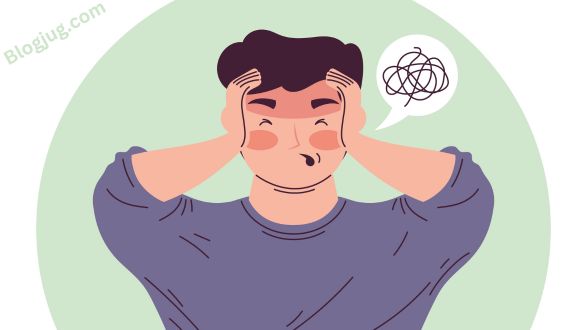One of the most(ear pain) frequent reasons we take our kids to the doctor or seek treatment for our aching ears is earache. Earaches might be a sign of an ear infection or a hidden medical condition. Rarely can ear pain or earache signify a serious medical condition. The reason dictates the course of treatment.

Overview
What is ear pain?
One of the most frequent reasons we send our kids to the doctor is for earache (ear discomfort), or we seek treatment for our own aching ears. Earaches might be a sign of an ear infection or a hidden medical condition. Rarely can ear pain or earache signify a serious medical condition. The treatment plan is determined by the cause.
Who’s affected by earache?
Almost anybody can have ear pain. However, younger children experience earache more frequently than adults do. By the time they are three years old, 80% of children will experience an acute otitis media middle ear infection, per a study.
Symptoms and Causes
What does it mean when my ears hurt?
Your ears may hurt from a variety of factors. Ear pain is classified by medical professionals into two groups: primary and secondary.
1. Your ears are the source of primary ear pain. For instance, primary ear pain is brought on by ear infections. Primary ear discomfort affects more youngsters than adults. Usually, primary ear pain worsens with time.
2. When illnesses that impact other areas of your body take a toll on your ears, it can lead to secondary ear pain. For instance, earache could be experienced by a person with impacted wisdom teeth. This pain has been referred to. The reason for the pain is that the nerves in your ears and surrounding body components are connected to your brain.
The following are typical main causes of ear pain:
1. Barotrauma: When you’re scuba diving or traveling in an airplane, your ears begin to hurt or feel full. Eardrum ruptures can result from barotrauma.
2. Foreign object in your child’s ear: You’re having trouble hearing and your ear hurts. When tiny infants indulge their curiosity, they frequently find themselves with food, stones, or beads stuck in their ears.
3. Eustachian tube dysfunction: Your ears feel heavy or hurt. You can experience popping sounds or tinnitus, which is ringing in the ears.
4. Swimmers ear: Children with upper respiratory infections frequently develop middle ear infections as a result of congestion and eustachian tube swelling. A very young child may develop an ear infection if they are pushing on their ears.
5. Otitis interna: Dizziness, hearing loss, nausea, vomiting, and quick, involuntary eye movements are some of the symptoms.
Common secondary causes of ear pain include:
1. Sore throats (pharyngitis) or tonsillitis: You or your child experience painful sore throats that go away quickly or stay there for a long time.
2. Dental problems: You or your kid suffers from dental cavities or abscesses.
3. Temporomandibular joint syndrome: When you chew or open your mouth, your ear(s) hurt.
4. Gastroesophageal reflux disease.
5. Ear infections.
How can I distinguish between an earache and an infection in my ears?
A common misconception is that an earache indicates an ear infection. Here are some details to help you recognize the differences:
1. You may experience pressure in your ear when you have an earache. Some earaches may begin unexpectedly and worsen over time.
2. Usually, an upper respiratory infection is followed by an ear infection. Fever and a lethargic or sick sensation are among the symptoms. Children are more likely than adults to get ear infections.
Are earaches a COVID symptom?
Although the COVID-19 virus affects individuals differently, earaches are not a typical COVID-19 symptom.
Diagnosis and Tests
How do healthcare providers diagnose earaches?
Your doctor will inquire about your ailments. They will check your ears out.
What happens if medical professionals inspect my child’s ears and discover nothing is amiss?
If your child appears to have healthy ears, your doctor might check for underlying issues that could be the source of subsequent ear pain. They might advise you to speak with an ear, nose, and throat (ENT) professional based on what they discover.
Management and Treatment
How do healthcare providers treat earaches?
The goal of providers is to identify and address the root cause of earaches. For instance, your doctor might suggest over-the-counter painkillers to treat your child’s ear infection and relieve ear pain. Antibiotics may also be prescribed by them. Similarly, your doctor would treat your child’s sore throat if it is the reason for their ear pain.
What can I do for ear pain?
To relieve your earache, consider these home remedies. Over-the-counter analgesics could be beneficial. Applying warm or cold compresses to their sore ears helps some people. Remember that an earache could indicate an infection or another issue. If your ear discomfort grows worse or stays for more than two or three days, see your doctor.
Prevention
Can earaches be prevented?
There are several causes of earaches. Thankfully, there are things you can do to lower your chance of getting an earache:
1. When flying in an aircraft, wear ear protection to prevent barotrauma.
2. Take care when cleaning your ears. To clean your outer ear, use a swab rather than sticking your finger inside the ear canal.
3. Ear pain and severe infections can result from upper respiratory infections. Washing your hands can lower your risk of illness, especially if you frequently contact your mouth, nose, or eyes. You should also avoid being around ill folks.
Outlook / Prognosis
If my child has an earache, what should I anticipate?
There are a few possible causes for your child’s earache. Certain earaches resolve on their own. If your child’s earache persists for longer than two days or you observe additional symptoms like fever, chills, or congestion, get in touch with your healthcare professional.
Living With
How do I take care of my earache?
Earaches can be brought on by a variety of factors, including infections, pressure changes in the air, and underlying medical disorders. After determining the reason of your earache, consult your healthcare physician about preventative measures for future ear issues.
What questions should I ask my doctor?
These are some queries you might have if you experience earaches:
1. What caused my earache?
2. Does my earache indicate a more serious issue?
3. How do you treat the problem?
4. How can I prevent earaches?
A note from Blogjug
Most people will at some point in their lives experience ear pain or earache. Earaches and infections are the main reasons why children see their doctors. Among the more common causes of earaches in adults are temporomandibular joint disorders and barotrauma from flying. It does not follow that you have to disregard earaches just because they are a common problem. If you ignore your earaches, though, they could get worse. Additionally, earaches may be a sign of potentially harmful underlying medical conditions. Talk to your healthcare provider about your ear health whenever you have concerns about earaches.








